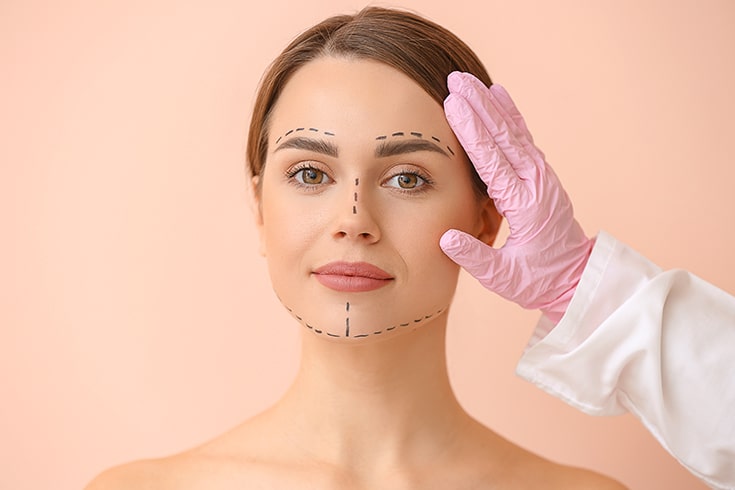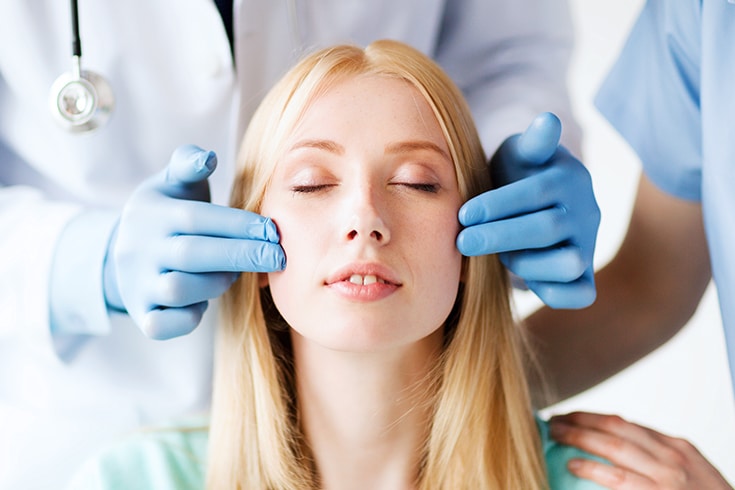How Legal is Recruiting Monitors at Beauty Clinics? Explaining the Japanese Medical Practitioners Act

Various regulations have been established for “advertisements” related to medical care. If false advertising or misunderstandings among patients are allowed, it becomes impossible to efficiently provide high-quality and appropriate medical care, which in turn can have a negative impact on the health of the nation.
The Medical Practitioners’ Act governs medical advertising. This law was amended on June 1, 2018 (Heisei 30), and websites, email newsletters, and pamphlets distributed at the request of patients, which were not considered “advertisements” under the Medical Practitioners’ Act, have become subject to advertising regulations.
However, the current situation is that it is difficult to understand what is legal and what is illegal unless you understand not only the amended Medical Practitioners’ Act but also related laws and regulations such as enforcement regulations and ministerial ordinances.
Therefore, in this article, we will explain in detail the points to note and the key points about “monitor recruitment advertisements” conducted by beauty clinics, which are of high interest in “advertisements related to medical care”.
What is “Advertising Related to Medical Care” Subject to Regulation?
Before the amendment of the Medical Practitioners’ Act, “advertisements related to medical care” that were subject to regulation had to meet all of the following three requirements:
- There is an intention to attract patients to consult (Attractiveness)
- The name of the medical institution can be specified (Specificity)
- It is in a state where the general public can see it without seeking it (Cognizance)
Before the amendment, because the requirement included “cognizance”, websites that the recipient of the information had to access by themselves were not considered “advertisements” and were not subject to regulation.
However, with the amendment of the law, “cognizance” was removed from the requirements, and if “attractiveness” and “specificity” are met, it became subject to regulation. In other words, medical institution websites, email newsletters, and pamphlets distributed at the request of patients also became subject to advertising regulations.
Currently, the following types of advertising media are subject to regulation:
- Flyers, pamphlets, direct mail, etc.
- Posters, signs, neon signs, ad balloons, etc.
- Newspapers, magazines and other publications, TV, radio, etc.
- Email, Internet
- Public meetings, consultation meetings, etc. targeting an unspecified number of people
Is it permissible to post cosmetic surgery monitor recruitment on review sites?

So, is it permissible to recruit monitors?
Nowadays, the use of monitors is an important marketing strategy in the beauty clinic industry. The content that can be advertised about medical care is limited by the Japanese Medical Practitioners Act, and the specific matters that can be advertised include the following:
- Being a doctor
- Name of the medical department
- Name, phone number, address of the hospital, and the name of the manager
- Whether or not treatment is available by appointment or the days and hours of treatment
- Being a designated hospital for certain medical treatments based on legal provisions
- Availability of hospitalization facilities, and the number of doctors, pharmacists, nurses, etc.
- Content of medical care
However, despite the fact that the “monitor recruitment advertisement” in the title is not included in the possible advertisements, most beauty clinic sites are recruiting monitors.
What makes this possible is the “lifting of restrictions on possible advertisements” stipulated in Article 1-9-2 of the Enforcement Regulations of the Japanese Medical Practitioners Act.
What are the requirements for lifting restrictions on possible advertisements?
The specific requirements for lifting restrictions on possible advertisements are met when all of the following 1 to 4 are satisfied:
- The advertisement is a website or similar that displays information that patients and others seek and obtain themselves and that is useful for making appropriate choices about medical care.
- Explicitly indicate by listing a contact point where patients can easily inquire about the content of the information displayed or by other means.
- Provide information on the content and cost of treatment, etc., that is normally necessary for free medical care*.
- Provide information on the main risks and side effects, etc., of treatment, etc., for free medical care*.
*Free medical care refers to “advanced medical care” and “medical care for cosmetic purposes (including cosmetic surgery)” that cannot use public health insurance.
According to this clause, if a beauty clinic meets all the requirements for lifting restrictions, it is considered possible to post advertisements for cosmetic surgery monitor recruitment on review sites and their own sites.
For “Points to note when posting patient reviews and comparison images before and after surgery on cosmetic surgery review sites”, please refer to the following article.
https://monolith.law/corporate/cosmetic-surgery-image-point[ja]
Is it permissible for a specific clinic to recruit monitors through TV and other media?

TV is a broadcasting medium that transmits information to an unspecified number of people at the same time. It does not meet the requirements for lifting the restrictions on permissible advertising matters (Japanese Advertising Law requirement 1), so beauty clinics cannot recruit monitors through TV.
However, even if TV cannot be used, there are various types of media through which beauty clinics can recruit monitors. These can be selected according to the purpose:
- Their own website
- Email newsletters
- Pamphlets distributed in response to patient requests
- Word-of-mouth websites
- Other media similar to the above
As mentioned earlier, even with the above media, it is necessary to clear requirements 2 to 4 for lifting the restrictions on permissible advertising matters (Japanese Advertising Law).
Can we post monitor testimonials on our website or review sites?

Under the Japanese Medical Practitioners’ Act, the following five types of ‘medical advertisements’ that satisfy ‘attractiveness’ and ‘specificity’ are prohibited:
- Advertisements with false content
- Advertisements claiming superiority over other hospitals or clinics
- Exaggerated advertisements
- Advertisements with content against public order and morals
- Advertisements on matters where advertising is not permitted
In addition to these, the following two types of advertisements are also prohibited by ministerial ordinance:
- Advertisements of testimonials about the content or effects of treatment, etc., based on the subjectivity of patients, etc. (Article 1, Paragraph 9, Item 1 of the Ministerial Ordinance)
- Principle prohibition of photographs before and after treatment, etc., which may mislead patients, etc., about the content or effects of treatment, etc. (Article 1, Paragraph 9, Item 2 of the Ministerial Ordinance)
Since monitor testimonials fall under ‘testimonials about the content or effects of treatment, etc., based on the subjectivity of patients, etc.’ in Article 1, Paragraph 9, Item 1 of the Ministerial Ordinance, we will explain this point in more detail.
Conditions under which monitor testimonials are permitted
The provisions of the Ministerial Ordinance mean that ① medical institutions ② introduce subjective testimonials of patients themselves about the content or effects of treatment, etc., ③ for the purpose of attracting customers. This is because the impressions of patients vary, and introducing the testimonials of specific patients may lead to misunderstanding.
However, the Medical Advertising Guidelines state that testimonials posted on ① websites operated by individuals, ② personal pages on SNS, and ③ review sites operated by third parties do not meet the requirement of ‘attractiveness’ for medical advertisements and are therefore not considered advertisements.
Therefore, even if testimonials from monitors are posted on beauty medical review and reservation apps such as ‘Tribute’, they do not meet the requirement of ‘attractiveness’ and do not fall under the prohibitions of the Ministerial Ordinance.
However, if the testimonial is requested by a medical institution or if the person has received a reward such as money, it is treated as having ‘attractiveness’, so the condition is that the patient writes the testimonial on the review site of their own accord without receiving money or other benefits from the medical institution.
For more information on ‘Is it okay to reward for cosmetic surgery review posts? Legal risks lurking in site operation’, please read the following article.
https://monolith.law/corporate/medical-institution-reward-law[ja]
Conditions under which before-and-after photos are permitted
Before-and-after photos are prohibited by the Ministerial Ordinance because they may mislead about the effects of treatment, but they are possible if all the requirements for lifting the limited permissible matters are met.
In other words, if ① on the website of a medical institution, ② contact information, ③ treatment content and cost, and ④ main risks and side effects, etc. are explained, even before-and-after photos do not fall under ‘advertisements that may mislead about the effects of treatment’.
Summary
We have explained the monitor recruitment advertisements necessary for the marketing of beauty clinics based on the ‘Japanese Medical Practitioners Act’, ‘Enforcement Regulations’, and ‘Ministerial Ordinance’. The two most important points are as follows:
- Whether it falls under ‘Advertisements related to medical treatment’ (presence or absence of inducement and specificity)
- Whether all ‘4 requirements for lifting the restriction on advertisable matters’ are met
However, to determine whether the apps and services that are constantly being born in the world of the internet are not violating various laws and regulations, it is necessary to scrutinize the relevant laws and regulations and analyze and consider them individually.
Therefore, when conducting ‘Advertisements related to medical treatment’, we recommend consulting with a lawyer who has abundant professional knowledge and experience in advance, rather than making a judgment on your own.
Category: General Corporate





















